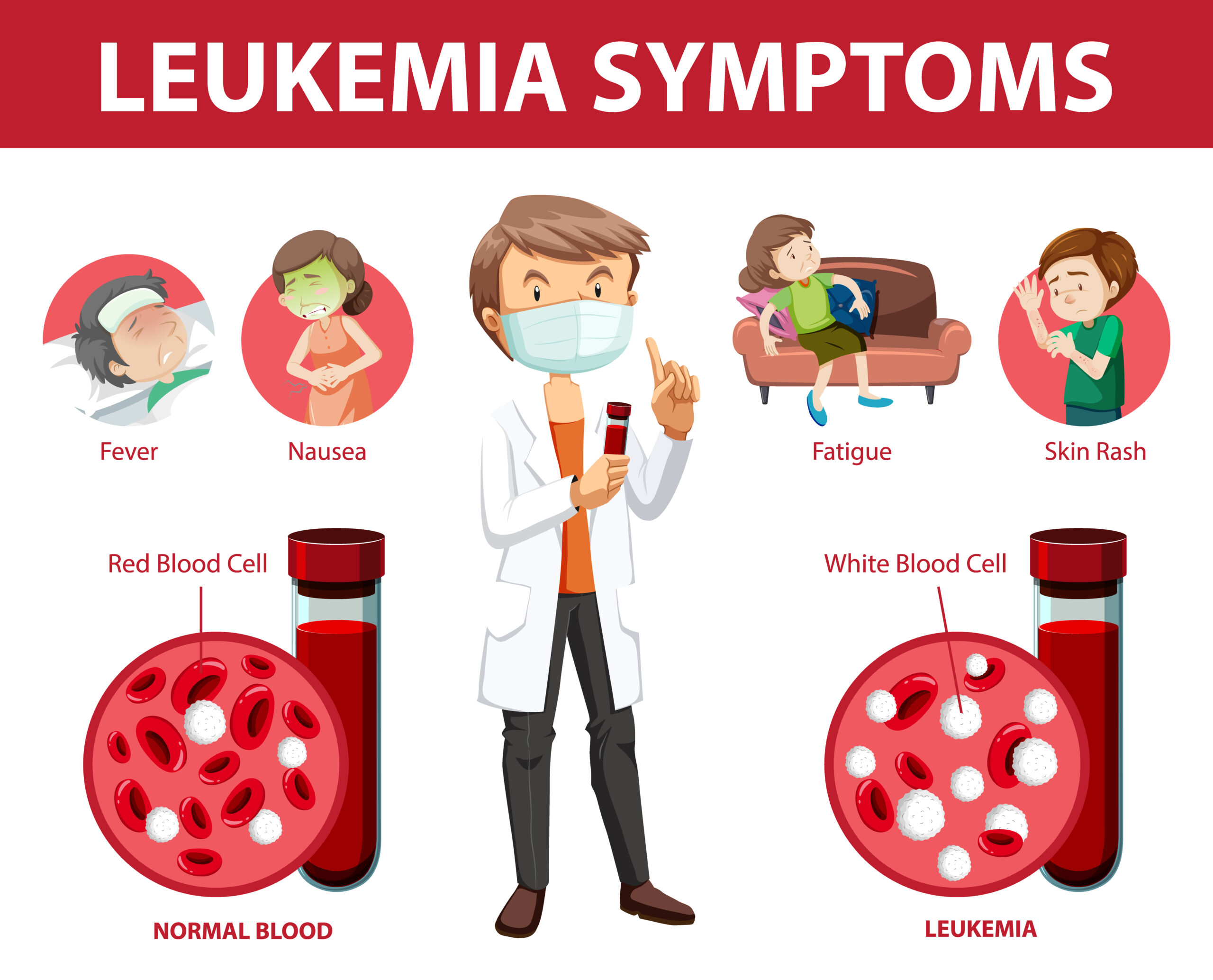
Leukemia is a form of blood cancer. The blood is made up of various types of cells that are made in the bone marrow (in the middle of bones) (in the middle of bones). In leukaemia, the bone marrow makes rare blood cells instead of usual blood cells. The abnormal cells develop out of control, get into the blood, and move throughout the body. As the bone marrow produces rare blood cells, it does not produce enough of the usual blood cells your child’s body needs. This causes signs, says, blood cancer specialist in Gurgaon – Dr. Vikas Dua.
There are various forms of leukaemia. Some forms grow rapidly, and others grow slowly. Most leukaemia in children is the fast-growing form, called “acute” leukaemia. There are 2 forms of acute leukaemia. Most children who have leukaemia have acute lymphoblastic leukaemia, often called “ALL.” But certain children with leukaemia have acute myeloid leukaemia, also called “AML.”
What are the signs of Leukaemia?
The most common symptoms are:
- Feeling very tired and frail
- Bleeding more quickly than normal
- Getting fevers or illnesses more quickly than normal
- Bone pain, which may make children limp or fail to walk
- Swollen lymph nodes (bean-shaped organs) that you can see or feel beneath your child’s skin
These symptoms can also be caused by disorders that are not leukaemia. But if your child has these signs, let the doctor know.
Is there a test for Leukaemia?
Yes. The doctor will inquire about your child’s symptoms and do an exam. They can also do:
- Blood checks
- A bone marrow biopsy – For this examination, a doctor takes a very small sample of the bone marrow. Then another doctor looks at the sample under a microscope to scan for cancer cells. How is leukaemia in children treated? The best treatment for your child will depend on the type of leukaemia:
- Acute lymphoblastic leukaemia (ALL) – Treatment includes chemotherapy, which applies to drugs that destroy leukaemia cells. Chemotherapy for Both involves drugs that are administered through a thin tube that goes through a vein (called a “IV”) as well as those that are taken by mouth and those that are inserted into the spinal fluid in the back. Many children with Everything are in “remission” shortly after they start treatment. This means that doctors should not see any more rare blood cells in the blood or bone marrow. But even though doctors do not see any irregular cells, they are still in the body. To destroy these cells and prevent the leukaemia from returning, your child will need to complete treatment. For many children, it may take around 2 to 3 years to complete care. The later parts of therapy are milder and children will also return to school and other activities during this period.
- Acute myeloid leukaemia (AML) – Treatment of AML includes chemotherapy with medicines given by IV. This is mostly accompanied by a bone marrow transplant (also called “stem cell transplant”) (also called “stem cell transplant”). This replaces cells in the bone marrow that are destroyed by chemotherapy or radiation. The “donor” cells may come from various locations, including:
- People who are related to your child, and whose blood matches your child’s
- People who are not related to your child, but whose blood matches your child’s
- Blood (that suits your child’s) from a newborn baby’s umbilical cord
What happens after a treatment?
After care, the doctor will monitor your child every so often to see if the leukaemia comes back. Follow-ups include consulting with the doctor, examinations, and blood tests. Often, the doctor will also perform a bone marrow biopsy.
You should also monitor your child for the symptoms mentioned above. Having those symptoms may mean the leukaemia has come back. Tell the doctor or nurse if your child has any signs.
What happens if the Leukaemia comes back?
If the leukaemia comes back, your child may have further care. This could include chemotherapy, radiation, immunotherapy (treatments that utilise the body’s immune system to kill cancer cells), or a bone marrow transplant.
Successful leukemia treatment begins with an accurate diagnosis. We have the expertise and Dr. Vikas Dua is highly experienced in diagnosing leukemia. Dr. Vikas Dua is blood Cancer Specialist In Gurgaon. He provides the highest quality of care to the patients. If you are diagnosed with leukemia, he will talk over the best options to treat it. The treatment options depend on several factors, including the type of leukemia, your age, and your general health. If you are looking for leukemia specialist near me, contact Dr. Vikas Dua today to make your appointment.

